TIME AND TIDES WITH PEKKA KUUSISTO
13 March 2024

Sponsored by




13 March 2024

Sponsored by



Sponsored by

Wednesday 13 March, 7.30pm, Holy Trinity Church, St Andrews
TÜÜR Lighthouse
CLYNE Time and Tides (UK Premiere)
Commissioned by Helsinki Philharmonic Orchestra, Scottish Chamber Orchestra and Swedish Chamber Orchestra.
Interval of 20 minutes
GRIME It Will Be Spring Soon (UK Premiere)
RAUTAVAARA Cantus Arcticus
Pekka Kuusisto Director/Violin
Ruby Hughes Soprano


4
Our Principal Conductor’s Circle is made up of individuals who are a special part of our musical family. Their commitment and generosity benefit us all – musicians, audiences and creative learning participants alike.
Annual Fund
James and Patricia Cook
Visiting Artists Fund
Colin and Sue Buchan
Harry and Carol Nimmo
Anne and Matthew Richards
International Touring Fund
Gavin and Kate Gemmell
Creative Learning Fund
Sabine and Brian Thomson
Conductor Emeritus Joseph Swensen
Donald and Louise MacDonald
Chorus Director Gregory Batsleer
Anne McFarlane
Principal Second Violin
Marcus Barcham Stevens
Jo and Alison Elliot
Principal Viola Max Mandel
Ken Barker and Martha Vail Barker
Viola Brian Schiele
Christine Lessels
Viola Steve King
Sir Ewan and Lady Brown
Principal Cello Philip Higham
The Thomas Family
American Development Fund
Erik Lars Hansen and Vanessa C L Chang
Productions Fund
Bill and Celia Carman
Anny and Bobby White
Anne, Tom and Natalie Usher
Scottish Touring Fund
Eriadne and George Mackintosh
Claire and Anthony Tait
Cello Donald Gillan
Professor Sue Lightman
Cello Eric de Wit
Jasmine Macquaker Charitable Fund
Principal Double Bass Nikita Naumov
Caroline Hahn and Richard Neville-Towle
Principal Flute André Cebrián
Claire and Mark Urquhart
Principal Oboe Robin Williams
In memory of Hedley G Wright
Principal Clarinet Maximiliano Martín
Stuart and Alison Paul
Principal Bassoon Cerys Ambrose-Evans
Claire and Anthony Tait
Principal Timpani Louise Lewis Goodwin
Geoff and Mary Ball

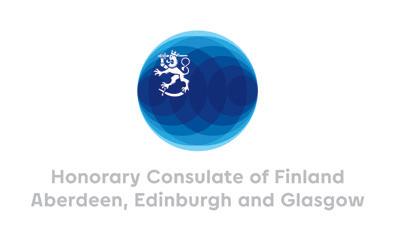




THANK YOU
Diamond
Malcolm and Avril Gourlay
John and Jane Griffiths
James and Felicity Ivory
Robin and Catherine Parbrook
Clair and Vincent Ryan
William Samuel
Tom and Natalie Usher
Platinum
David Caldwell in memory of Ann
Judith and David Halkerston
J Douglas Home
Audrey Hopkins
David and Elizabeth Hudson
Dr and Mrs Peter Jackson
Dr Daniel Lamont
Chris and Gill Masters
Duncan and Una McGhie
Anne-Marie McQueen
James F Muirhead
Patrick and Susan Prenter
Mr and Mrs J Reid
George Ritchie
Martin and Mairi Ritchie
Hilary E Ross
Elaine Ross
George Rubienski
Jill and Brian Sandford
Michael and Elizabeth Sudlow
Robert and Elizabeth Turcan
Alan and Sue Warner
Finlay and Lynn Williamson
Dr Peter Williamson and Ms Margaret Duffy
Ruth Woodburn
William Zachs
Gold
John and Maggie Bolton
Kate Calder
Lord Matthew Clarke
Jo and Christine Danbolt
James and Caroline Denison-Pender
Andrew and Kirsty Desson
David and Sheila Ferrier
Chris and Claire Fletcher
Dr J W E Forrester
James Friend
Adam Gaines and Joanna Baker
Margaret Green
Iain Gow
Christopher and Kathleen Haddow
Gordon Kirk
Robert Mackay and Philip Whitley
Mike and Karen Mair
Anne McAlister and Philip Sawyer
Roy and Svend McEwan-Brown
John and Liz Murphy
Maggie Peatfield
Charles Platt
Alison and Stephen Rawles
Andrew Robinson
Olivia Robinson
Irene Smith
Ian S Swanson
John-Paul and Joanna Temperley
James Wastle and Glenn Craig
Bill Welsh
Catherine Wilson
Neil and Philippa Woodcock
G M Wright
Bruce and Lynda Wyer
Silver
Roy Alexander
Pamela Andrews and Alan Norton
Dr Peter Armit
William Armstrong
Fiona and Neil Ballantyne
Timothy Barnes and Janet Sidaway
The Batsleer Family
Jack Bogle
Jane Borland
Alan Borthwick
Michael and Jane Boyle
Mary Brady
Elizabeth Brittin
John Brownlie
Laura Buist
Robert Burns
Sheila Colvin
Lorn and Camilla Cowie
Philip Croft and David Lipetz
Lord and Lady Cullen of Whitekirk
Adam and Lesley Cumming
Dr Wilma Dickson
Sylvia Dow
Dr and Mrs Alan Falconer
Sheila Ferguson
Malcolm Fleming
Dr William Irvine Fortescue
Dr David Grant
Andrew Hadden
J Martin Haldane
Ronnie and Ann Hanna
Ruth Hannah
Robin Harding
Roderick Hart
Norman Hazelton
Ron and Evelynne Hill
Philip Holman
Clephane Hume
Tim and Anna Ingold
David and Pamela Jenkins
Susannah Johnston and Jamie Weir
Catherine Johnstone
Julie and Julian Keanie
Marty Kehoe
Professor
Christopher and Mrs Alison Kelnar
Dr and Mrs Ian Laing
Janey and Barrie Lambie
Graham and Elma Leisk
Geoff Lewis
Dorothy A Lunt
Vincent Macaulay
James McClure in memory of Robert Duncan
Gavin McCrone
Brian Miller
James and Helen Moir
Alistair Montgomerie
Margaret Mortimer and Ken Jobling
Andrew Murchison
Hugh and Gillian Nimmo
David and Tanya Parker
Hilary and Bruce Patrick
John Peutherer in memory of Audrey Peutherer
James S Potter
Alastair Reid
Fiona Reith
Catherine Steel
Michael and Jane Boyle
Ian Szymanski
Takashi and Mikako Taji
Douglas and Sandra Tweddle
C S Weir
We believe the thrill of live orchestral music should be accessible to everyone, so we aim to keep the price of concert tickets as fair as possible. However, even if a performance were completely sold out, we would not cover the presentation costs.
We are indebted to everyone acknowledged here who gives philanthropic gifts to the SCO of £300 or greater each year, as well as those who prefer to remain anonymous. We are also incredibly thankful to the many individuals not listed who are kind enough to support the Orchestra financially, whether that is regularly or on an ad hoc basis. Every single donation makes a difference and we are truly grateful.
Become a regular donor, from as little as £5 a month, by contacting Hannah Wilkinson on 0131 478 8364 or hannah.wilkinson@sco.org.uk.
“A crack musical team at the top of its game.”
THE TIMES

HRH The Former Duke of Rothesay
Patron
Donald MacDonald CBE
Life President
Joanna Baker CBE
Chair
Gavin Reid LVO
Chief Executive
Maxim Emelyanychev
Principal Conductor
Joseph Swensen Conductor Emeritus
Gregory Batsleer
Chorus Director
Jay Capperauld Associate Composer
Information correct at the time of going to print
First Violin
Afonso Fesch
Tijmen Huisingh
Kana Kawashima
Aisling O’Dea
Siún Milne
Fiona Alexander
Amira Bedrush-McDonald
Sian Holding
Second Violin
Marcus Barcham Stevens
Gordon Bragg
Rachel Smith
Stewart Webster
Niamh Lyons
Amy Cardigan
Viola
Max Mandel
Jessica Beeston
Brian Schiele
Steve King
Cello
Philip Higham
Su-a Lee
Donald Gillan
Eric de Wit
Bass
Nikita Naumov
Jamie Kenny
Flute
André Cebrián
Marta Gómez
Piccolo
Marta Gómez
Oboe
Robin Williams
Katherine Bryer
Cor Anglais
Katherine Bryer
Clarinet
Maximiliano Martín
William Stafford
Bass Clarinet
William Stafford
Bassoon
Cerys Ambrose-Evans
Alison Green
Contrabassoon
Alison Green
Afonso Fesch
Principal First Violin
Horn
Chris Gough
Hector Salgueiro
Trumpet
Peter Franks
Shaun Harrold
Trombone
Duncan Wilson
Timpani
Tom Hunter
Percussion
Iain Sandilands
Kate Openshaw
Harp Sharron Griffiths
Celeste
Simon Smith

TÜÜR (b.1959)
Lighthouse (1997)
CLYNE (b. 1980)
Time and Tides (2023) (UK Premiere)
I. My True Lover’s Farewell – from England
II. Who Can Sail Without Wind? – from Finland
III. My Fair Young Love – from Scotland
IV. The Golden Willow Tree – from America
V. Farewell
Commissioned by Helsinki Philharmonic Orchestra, Scottish Chamber Orchestra and Swedish Chamber Orchestra
GRIME (b. 1981)
It Will Be Spring Soon (2021) (UK Premiere)
Coming
Little clown, my heart
Once, I
RAUTAVAARA (1928-2016)
Cantus Arcticus, Op 61 (1972)
The bog
Melancholy
Swans migrating
The need to express through song is a primal human urge, and the voice, after all, is the musical instrument that virtually all of us possess. Communicating and connecting through song is hardly restricted to homo sapiens , either, as we’ll hear at the end of tonight’s concert.
But it’s song – both vocal and instrumental – that provides the connecting thread running through this evening’s pieces. Most of them were created in just the past half-century, though some look backwards in time to older tunes that have found their places among established traditions, and also outwards from the concert hall into the rawer, more authentic sounds of nature.
Though it’s not directly song-inspired, Estonian composer Erkki-Sven Tüür shines a bright beam into these sonic connections with his Lighthouse , which opens the concert. And he took a specific edifice as inspiration: the monolothic Kõpu Lighthouse, on the island of Hiiumaa, out in the Baltic Sea west of Estonian capital Tallinn (and also close to the composer’s summer home). It’s a mighty, castle-like, buttressed structure, one of the most ancient lighthouses in the world, and has been in continuous opeation since 1531.
Tüür studied classically while Estonia was still under Soviet rule, and he has long produced works of distinctive power and dynamism, music that seems to be reconsidering its own fundamental energy and purpose. Perhaps it’s no coincidence that he headed Estonian prog rock group In Spe for five years, to considerable success. It came as almost a surprise to Tüür to discover his gritty works finding

Lighthouse isperhaps more of a tribute to Bach’s enduringlegacyandthe continuingrelevanceof hismusic,ratherthanan attempttoreimagineor recreate it.
interest and appreciation in the West as the strict Soviet regulations began to relax in the late 1980s.
Lighthouse comes from 1997, and was commissioned by Ansbach Bach Week in Germany, with the request that Tüür might take some aspect of Bach’s music as a starting point. Tüür’s references to the earlier composer’s energetic textures and intermingling melodic lines are clear, but Lighthouse doesn’t simply set out to update Bach for our own times. Instead, Tüür has said, he remembered something said by Igor Stravinsky, who compared composers to lighthouses: their influence, Stravinsky felt, might shine several centuries into the future. With that in mind, Lighthouse is perhaps more of a tribute to Bach’s enduring legacy and the continuing relevance of his music, rather than an attempt to reimagine or recreate it.
Monumental, slow-moving harmonies open the piece, followed by quicker, Bachian figurations, whose shifting rhythms set their layers of texture out of kilter with each other. A very modern reinterpretation of a Bach-style fugue kicks off about halfway through the piece, though it’s soon caught up in more swirling figurations. Baroquestyle ideas, however, return to drive the piece to its definitive conclusion.
Anna Clyne’s Time and Tides draws on folk songs from England, Finland, Scotland and America. Its dedicatee, Pekka Kuusisto (also tonight’s soloist and director), is equally passionate about classical and traditional musics, and Edinburgh-based fiddler Aidan O’Rourke, a luminary in contemporary trad music and another friend of Clyne’s, played a crucial role in the piece’s genesis (as she explains below).
Erkki-Sven Tüür Anna Clyne
Anna Clyne
Anna Clyne has ties with all four countries whose folk melodies she draws from in Time and Tides . She was born in London, studied in Edinburgh, has lived in New York for several years (following further studies at the Manhattan School of Music), and is currently composer in residence with the Helsinki Philharmonic (where Kuusisto has a parallel role as principal guest conductor). She was also the Scottish Chamber Orchestra’s Associate Composer from 2019 to 2022. She writes about Time and Tides :
"Set in five movements, Time and Tides is inspired by four folk tunes as follows:
I. My True Lover’s Farewell – from England
II. Who Can Sail Without Wind? – from Finland
III. My Fair Young Love – from Scotland
IV. The Golden Willow Tree – from America
"This collection of folk songsexploresthemesof boating,theoceansand partingfromlovedones. Eachmovementbegins with a statement of the folk tuneinitsoriginalformand Ithenspinitoutthroughmy own lens."
This collection of folk songs explores themes of boating, the oceans and parting from loved ones [for songs see pages 16-21] . Each movement begins with a statement of the folk tune in its original form and I then spin it out through my own lens – harmonising, orchestrating and expanding upon the source material to create new narratives. The fifth and final movement, titled ‘Farewell’, weaves together elements of all four folk tunes heard in the previous movements. Time and Tides is dedicated to violinist Pekka Kuusisto. Special thanks to musicians Bruce Molsky and Aidan O’Rourke for sharing folk tunes from their native countries."
From folk songs reinterpreted through Anna Clyne’s creative lens, we move to entirely new songs – or at least vocal and instrumental settings of poetry,
 Helen Grime
Helen Grime
pairing soprano and violin soloists with string orchestra. Helen Grime was born in York, but moved to Scotland with her parents as a baby, studying at the City of Edinburgh Music School and St Mary’s Music School, as well as taking composition lessons from the age of 12 with Icelandic multi-musician Hafliði Hallgrímsson (for many years the SCO’s Principal Cellist). She’s been Associate Composer with the Hallé and Composer in Association at London’s Wigmore Hall, and is currently Professor of Composition at London’s Royal Academy of Music.
She writes:
"
It will be spring soon was written for Ruby Hughes and Malin Broman, two musicians I am lucky enough to have enjoyed several years of wonderful
"It will be spring soon was writtenforRubyHughes andMalinBroman,two musiciansIamlucky enoughtohaveenjoyed severalyearsofwonderful musical collaboration and friendshipwith.Iknew fromthemomentIagreed towritethepiecethatI wantedittobeaboutjoyin someway."
musical collaboration and friendship with. I knew from the moment I agreed to write the piece that I wanted it to be about joy in some way. The three poems I decided to set shine a spotlight on this theme in different ways. In ‘Coming’, by Philip Larkin (the work’s overall title comes from this poem), a sense of hope and delight is heralded by the sound of a thrush singing. ‘Little clown, my heart’, by Sandra Cisneros, has an infectious, lighthearted energy to it. Finally, in ‘Once, I’ by Jane Hirshfield, I was struck by an incredible hazy, serene, maybe blissful atmosphere. I hope I’ve captured some of the spirit of these wonderful poems in my settings of them."
We move out from the human world into songs from nature in tonight’s closing piece. Einojuhani Rautavaara was a Finnish composer from the
 Einojuhani Rautavaara
Einojuhani Rautavaara
generation after Sibelius, and indeed was championed and supported by the elder composer early in his career. He wrote his Cantus arcticus , a ‘Concerto for Birds and Orchestra’, in 1972, as a somewhat unusual contribution to the University of Oulu’s celebrations marking its first doctoral degree ceremony. Rather than a conventional festive work, Rautavaara travelled down the road to nearby Liminka – as well as further north towards the Arctic Circle – to record birdsong that he would set in conversation with an orchestra in this reflective, even mystical tribute to the natural world.
An ornate, fluttering flute duet opens Rautavaara’s first movement, ‘The Bog’, quickly joined by other woodwind instruments, and then by the songs of springtime birds from the Finnish marshes. Strings later introduce slowmoving, hymn-like music, which rises
Rather than a conventional festivework,Rautavaara travelled down the road to nearbyLiminka–aswell as further north towards the Arctic Circle – to record birdsongthathewould set in conversation with an orchestrainthisreflective, evenmysticaltributetothe natural world.
majestically through the orchestra with glitter from harp and celeste, before a solo clarinet rounds the movement off with a brief memory of the flutes’ opening music.
The second movement, ‘Melancholy’, features a slowed-down recording of two shore larks as they serenade each other, set against quietly radiant harmonies in the strings. And it’s the birds themselves – this time whooper swans, flying together, distant but drawing ever closer – that launch the final movement, ‘Swans Migrating’. It opens with the orchestra divided into independent groups, each moving at its own tempo, but the horns’ long, flowing melody brings the players together in a majestic arc of music that reaches its climax as the swans fly overheard, only to disappear again into the far distance.
© David Kettle21-22 Mar, 7.30pm
Edinburgh | Glasgow sco.org.uk

Maxim Emelyanychev Conductor
Karen Cargill Mezzo Soprano
Robert Jordan Bagpipes
SCO Chorus
Gregory Batsleer Chorus Director
Set in five movements, Time and Tides is inspired by four folk tunes as follows
CLYNE (b. 1980)
Time and Tides (2023)
Melody transcribed from a recording by Marsha Genensky and Bruce Molsky (from the album “1865: Songs of Hope and Home from the American Civil War”)
Oh fare you well my own true love
So fare you well for a while I’m going away, but I’m coming back If I go ten thousand miles.
If I prove false to you, my love, The earth may melt and burn, The sea may freeze and the earth may burn, If I no more return.
Ten thousand miles, my own true love, Ten thousand miles or more; The rocks may melt and the sea may burn, If I never no more return.
And who will shoe your pretty little feet, And who will glove your hand, And who will kiss your red rosy cheek
When I’m in the far-off land?
My father will shoe my pretty little feet, My mother will glove my hand, And you can kiss my red rosy cheek
When you return again.
O don’t you see that little turtle dove, A-skipping from vine to vine, She’s mourning for her own true love Just as I mourn for mine.
Melody transcribed from a recording by Pekka Kuusisto
Who can sail without wind?
Who can row without oars?
Who can part from a friend without shedding tears?
I can sail without wind, I can row without ours, But not part from a friend without shedding tears.
Melody transcribed from a recording by Aidan O’Rourke
– ancient rowing songs from Scotland
IV. The Golden Willow Tree – from America
Melody transcribed from a recording by Bruce Molsky (from the album Soon Be Time)
There was a little ship in South Ferry Sea
Cryin’ Oh the lonesome land so low
‘Was a little ship in South Ferry Sea
And she went by the name of the Golden Willow Tree
And she lay there in the low and lonesome low Lay there in the low land so low
She had not been sailin' more than two weeks or three.
Cryin' Oh the lonesome land so low
‘Had not been sailin' more than two weeks or three
Till she came to the side of the British Rovarie
And they lay there in the low and lonesome low Lay there in the low land so low.
Up stepped a little cabin boy
Cryin' oh the lonesome land so low.
Up stepped a little cabin boy
Cryin' what will you give me for that ship that I’ll destroy
If I sink her in the low and lonesome low Sink her in the low land so low.
Oh I’ll give you gold or I’ll give thee
Cryin' oh the lonesome land so low
I’ll give you gold or I’ll give thee the fairest of my daughters as you sail upon the sea
If you sink her in the low and lonesome low sink her in the low land so low
Well he turned on his back and away swum he
Cryin' oh the lonesome land so low
Turned on his back and away swum he
He swum till he come to the British Roverie and they lay there in the low and lonesome low Lay there in the low land so low.
He had a little instrument all fitted for his use
Cryin' oh the lonesome land so low
Had a little instrument all fitted for his use
And he bored nine holes and he bored them all at once.
And he sunk her in the low and lonesome low
Sunk her in the land so low
Well he turned on his back and back swum he
Cryin' oh the lonesome land so low
Turned on his back and back swum he
He swum till he come to the Golden Willow Tree
And she lay there in the low and lonesome low
Lay there in the low land so low
Oh Captain Oh captain sir take me on board
Cryin' oh the lonesome land so low
Captain Oh captain sir take me on board
And do unto me as good as your word
For I sunk her in the low and lonesome low
Sunk her in the low land so low
Oh no I won’t take you on board
Cryin' oh the lonesome land so low
No I won’t take you on board
Nor do unto you as good as my word
Though you sunk her in the low and lonesome low
sunk her in the low land so low
If it wasn’t for the love of your daughter and your men
Cryin' oh the lonesome land so low
‘Wasn’t for the love of your daughter and your men
I’d do unto you as I’d done unto them.
I would sink you in the low and lonesome low
Sink you in the low land so low
He turned around ‘n down swum he
Cryin' oh the lonesome land so low
Turned around ‘n down swum he
He swum till he come to the bottom of the sea
And he lay there in the low and lonesome low
Lay there in the low land so low
GRIME (b. 1981)
It Will Be Spring Soon (2021)
Coming
On longer evenings, Light, chill and yellow, Bathes the serene
Foreheads of houses. A thrush sings, Laurel-surrounded
In the deep bare garden, Its fresh-peeled voice Astonishing the brickwork.
It will be spring soon, It will be spring soonAnd I, whose childhood Is a forgotten boredom, Feel like a child
Who comes on a scene
Of adult reconciling, And can understand nothing But the unusual laughter, And starts to be happy.
Philip LarkinLittle clown, my heart, Spangled again and lopsided, Handstands and Peking pirouettes, Backflips snapping open like A carpenter's hinged ruler,
Little gimp-footed hurray, Paper parasol of pleasures, Fleshy undertongue of sorrows, Sweet potato plant of my addictions,
Acapulco cliff-diver corazón, Fine as an obsidian dagger, Alley-oop and here we go Into the froth, my life, Into the flames!
Sandra CisnerosOnce, I
Once, I was seven Spanish bullocks in a high meadow, sleepy and nameless.
As-ifness strange to myself, but complete. Light on the neck-nape of time as two wings of one starling, or lovers so happy neither needs think of the other.
Jane Hirshfield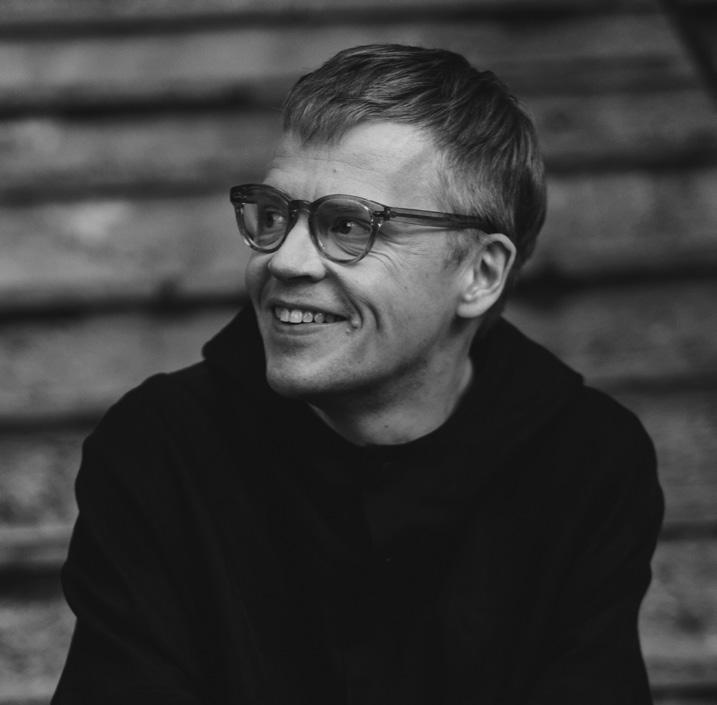
Violinist, conductor, and composer Pekka Kuusisto is renowned for his artistic freedom and fresh approach to repertoire. Kuusisto is Artistic Director of the Norwegian Chamber Orchestra and Principal Guest Conductor & Artistic Co-Director of Helsinki Philharmonic Orchestra from the 2023/24 season. He is also a Collaborative Partner of the San Francisco Symphony, and Artistic Best Friend of Die Deutsche Kammerphilharmonie Bremen.
In the 2023/24 season, Kuusisto performs with Mahler Chamber Orchestra, Leipzig Gewandhaus, Helsinki Philharmonic, San Francisco Symphony, Norwegian Chamber, Los Angeles Philharmonic, NHK Symphony, Tokyo Symphony, and Boston Symphony. He appears as guest conductor with the Deutsches Symphonie-Orchester Berlin, Tokyo Metropolitan Symphony Orchestra, Gothenburg Symphony Orchestra, Scottish Chamber Orchestra, Swedish Chamber Orchestra and Orchestre de chambre de Paris. As Council, Kuusisto also tours North America and Australia with American singer-songwriter Gabriel Kahane.
Kuusisto is an enthusiastic advocate of contemporary music and a gifted improviser and regularly engages with people across the artistic spectrum. Uninhibited by conventional genre boundaries and noted for his innovative programming, recent projects have included collaborations with Hauschka and Kosminen, Dutch neurologist Erik Scherder, pioneer of electronic music Brian Crabtree, eminent jazz trumpeter Arve Henriksen, juggler Jay Gilligan, accordionist Dermot Dunne and folk artist Sam Amidon.
Pekka Kuusisto plays the Antonio Stradivari Golden Period c.1709 ‘Scotta’ violin, generously loaned by an anonymous patron.
For full biography please visit sco.org.uk
Pekka Kuusisto Visiting Artist Chair sponsored by The Honorary Consulate of Finland, Edinburgh, Glasgow, Aberdeen

Former BBC New Generation Artist, winner of both First Prize and Audience Prize at London's 2009 Handel Singing Competition, Ruby also holds a Borletti-Buitoni Trust Award and was shortlisted for a 2014 Royal Philharmonic Society Music Award.
Given her background and her wide range of interests, it comes as no surprise that Ruby is a passionate programmer, curator and collaborator. She has forged particularly close relationships with artists such as Laurence Cummings, Joseph Middleton, Jonas Nordberg, Natalie Clein and Julius Drake, Huw Watkins, United Strings of Europe, The Manchester Collective and the BBC Philharmonic Orchestra. This season 23/24 she was invited to curate and perform in a series of three concerts for BBC Northern Ireland as well as to present Inside Music for BBC Radio 3.
Ruby’s passion for performing new repertoire has also led to her becoming a champion of female composers. Pieces by Helen Grime, Deborah Pritchard, Judith Weir and Errolyn Wallen have been commissioned for her.
Recent and upcoming highlights include Britten’s Les Illuminations with Orchestre d’Auvergne under Christian Zacharias, Mahler’s Rückert Lieder with the Residente Orckest under Jun Märkl, Mahler 2 also with the Residente Orkest with Anja Bihlmaier and the Ulster Orchestra under Daniele Rustioni, Strauss Vier letzte Lieder with the Manchester Collective and Mozart programmes with Orchestre de Picardie and Orchestre National de Lille.
Baroque performances include a solo programme with Potsdam Kammerakademie, recitals with Fretwork in Brecon, Bath and the Lake District, Messiah with La Chapelle Harmonique and Handel’s Israel in Egypt for the Göttingen Handel Festival under Klaus Stok.
Ruby performed the world premiere of Helen Grime’s It will be Spring Soon with Musica Vitae and Malin Broman in Sweden.
For full biography please visit sco.org.uk
© Phil Sharp
The Scottish Chamber Orchestra (SCO) is one of Scotland’s five National Performing Companies and has been a galvanizing force in Scotland’s music scene since its inception in 1974. The SCO believes that access to world-class music is not a luxury but something that everyone should have the opportunity to participate in, helping individuals and communities everywhere to thrive. Funded by the Scottish Government, City of Edinburgh Council and a community of philanthropic supporters, the SCO has an international reputation for exceptional, idiomatic performances: from mainstream classical music to newly commissioned works, each year its wide-ranging programme of work is presented across the length and breadth of Scotland, overseas and increasingly online.
Equally at home on and off the concert stage, each one of the SCO’s highly talented and creative musicians and staff is passionate about transforming and enhancing lives through the power of music. The SCO’s Creative Learning programme engages people of all ages and backgrounds with a diverse range of projects, concerts, participatory workshops and resources. The SCO’s current five-year Residency in Edinburgh’s Craigmillar builds on the area’s extraordinary history of Community Arts, connecting the local community with a national cultural resource.
An exciting new chapter for the SCO began in September 2019 with the arrival of dynamic young conductor Maxim Emelyanychev as the Orchestra’s Principal Conductor. His tenure has recently been extended until 2028. The SCO and Emelyanychev released their first album together (Linn Records) in November 2019 to widespread critical acclaim. Their second recording together, of Mendelssohn symphonies, was released in November 2023.
The SCO also has long-standing associations with many eminent guest conductors and directors including Andrew Manze, Pekka Kuusisto, François Leleux, Nicola Benedetti, Isabelle van Keulen, Anthony Marwood, Richard Egarr, Mark Wigglesworth, John Storgårds and Conductor Emeritus Joseph Swensen.
The Orchestra’s current Associate Composer is Jay Capperauld. The SCO enjoys close relationships with numerous leading composers and has commissioned around 200 new works, including pieces by the late Sir Peter Maxwell Davies, Sir James MacMillan, Anna Clyne, Sally Beamish, Martin Suckling, Einojuhani Rautavaara, Karin Rehnqvist, Mark-Anthony Turnage and Nico Muhly.
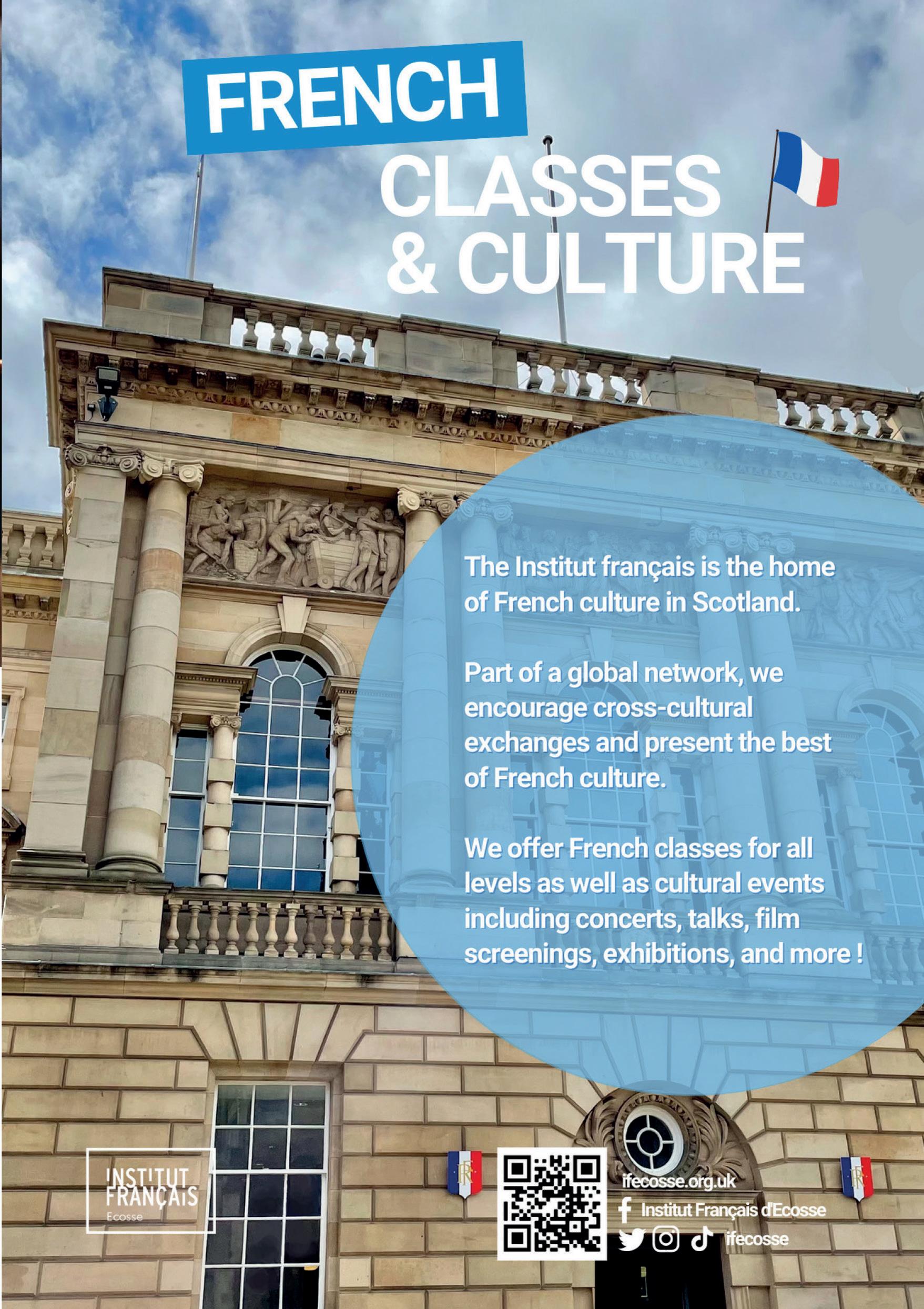




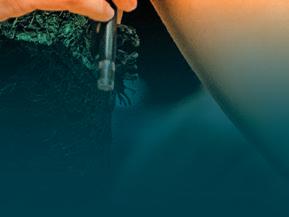

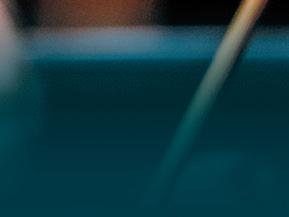







For 50 years, the SCO has inspired audiences across Scotland and beyond.
From world-class music-making to pioneering creative learning and community work, we are passionate about transforming lives through the power of music and we could not do it without regular donations from our valued supporters.
If you are passionate about music, and want to contribute to the SCO’s continued success, please consider making a monthly or annual donation today. Each and every contribution is crucial, and your support is truly appreciated.
For more information on how you can become a regular donor, please get in touch with Hannah Wilkinson on 0131 478 8364 or hannah.wilkinson@sco.org.uk
sco.org.uk/support-us
The SCO is a charity registered in Scotland No SC015039.